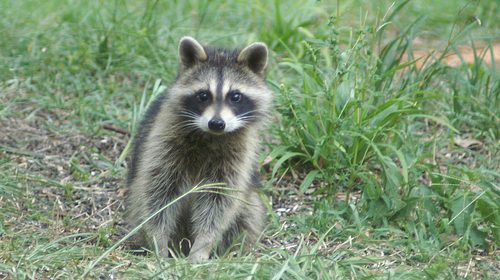Protect Your Pet With a Rabies Vaccine, Says Health Department

 With the warmer weather this spring and summer comes increased activity for both pets and wild animals.
With the warmer weather this spring and summer comes increased activity for both pets and wild animals.
That’s why local health departments are urging pet owners to make sure their animals are vaccinated against rabies.
Rabies is a deadly virus that both humans and animals can contract from infected wildlife or feral cats and dogs.
There is no cure for rabies so it is vital your animals are vaccinated to keep them and your family protected.
Franklin County Environmental Health Director Louis Korff says even if your dog or cat stays indoors most of the time, they should still be vaccinated.
“I have heard this from a couple of different people: ‘Oh I don’t have to get my dogs vaccinated because they’re indoor dogs,’” Korff said. “Well, we recently had a case where someone let their dogs out at night to do their business and they got tangled up with a raccoon. Said raccoon was put down, tested and was positive (for rabies). So, the moral of the story is every single dog, cat, ferret or large animal should be vaccinated against rabies. It will save you a lot of heartache and misery.”
And Korff warns that even a dog lot or a tall fence will not protect your animals from a wild animal infected with rabies.
“Nothing could be farther from the truth,” Korff explained. “Remember, when that animal gets to the point where it’s spreading the disease, the rabies virus has gotten to its brain and all it wants to do is fight and bite. I had a case where a skunk got itself through he openings in a standard chainlink fence. I’ve had cases where raccoons got over a six-foot kennel fence that was covered and it didn’t phase them. So, the only true way to protect your animal is by vaccinations.”
Rabies is a viral infection transmitted in the saliva of infected mammals.
The virus enters the central nervous system of the host animal or human causing an inflammation of the brain that is almost always fatal.
Korff says there are certain wild animals in our region which are carriers of the disease.
“We call those the ‘rabies reservoir animals,’” he said. “At the top of the list is the raccoon, then the skunk, the coyote, the fox, and never forget the bat. And bats are a real challenge because their teeth are so tiny that if you were bitten you might never know it unless you actually saw it bite you. So if you’re awaken in the middle of the night and there’s a bat flying around your room, we consider that an exposure and we need to test that bat.”
Korff notes if a bat does get into your home, do not try to shoo it out of the house. Rather, call your local health department or 911 so they can get it and have it tested for rabies.
In addition, he says animals such as the raccoon, fox, or skunk usually only come out at night and if you see one in the daytime, you should stay away from it and call 911.
The typical cost of a rabies vaccine is about $10 at your local veterinarian’s office.
Additionally, both the Stephens and Franklin County Health Departments will be conducting rabies clinics this spring where you can get your animal vaccinated for just $5.
Additionally, local animal shelters, such as the Northeast Georgia Animal Shelter in Lavonia and the Toccoa-Stephens County Animal Shelter conduct low-cost rabies clinics every year.
And as soon as those clinics are announced, WNEG News will bring that information to you.
